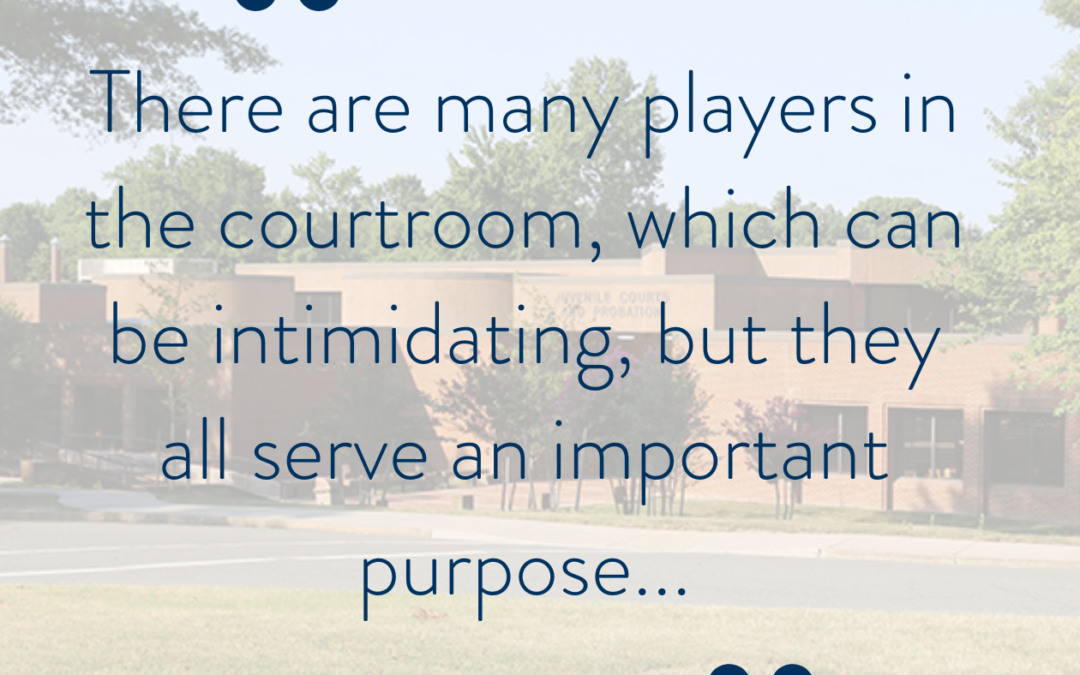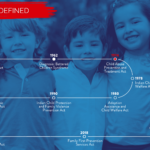
As COURT Appointed Special Advocates, the courtroom is essential to our work. This is where a Judge initially appoints us to serve a child. It is also where we then bring forth information and observations that assist the Judge in making weighty decisions on behalf of that child. This month, we welcome “guest bloggers” to share their perspective on the roles they play within the courtroom to serve both the court system and children in need of a voice.
Overview from the Clerk of Court
Going to Court. Most people cringe at this statement. Some fear it. While there are admittedly “cringy” times, the primary goal of the Juvenile & Domestic Relations Court (JDR) is rehabilitation and reunification of families. Henrico JDR has a bench of 5 female Judges who routinely refer litigants to different services based on the different needs of each family.
What services/programs can be put into place to assist the family best- maybe a mental health evaluation or medication evaluation, maybe an anger management class would assist? Henrico JDR has access to a wide range of services, most at little or no cost to families. For example, upon filing an initial petition for custody or visitation, biological parents must attend a Parenting Class Seminar by Virginia Code. In some localities, this cost is assessed to the party. In Henrico, that service is provided free of charge at the expense of Henrico County.
There are different individuals with different roles within the justice system and courtroom. I’ll use a criminal case as an example since most people think of “Law and Order” moments. Of course, you have the Judge. The Judge hears all the evidence and decides, based on the law, guilt or innocence. This is different from a civil or family court case where the Judge makes decisions based on best interest of the child, according to the factors set forth in Virginia law.
In criminal cases, the Commonwealth Attorney prosecutes the case. The defendant is represented by an attorney if desired, known as Defense Counsel. Guardian ad litems (GAL) are appointed to make recommendations to the court based on best interest of any children that may be involved. Defense Counsel and GALs differ in that regard. Defense counsel is trying to get the charge dismissed or reduced based on an error or the letter of the law, while the GAL assesses the family situation. If a finding of guilt is made, the GAL makes recommendations to best assist the child/family. For example, if a child is charged with petit larceny and convicted, the GAL may make a recommendation for the juvenile to complete Larceny Reduction Program.
In our Court, there are two Sheriff’s Deputies in each courtroom who are responsible for security in the courtrooms and courthouse. A Deputy Clerk, who is an employee of the Clerk’s Office, is also in the courtroom.
Then there is the Clerk of Court who is responsible for all aspects of the Clerk’s Office to include, serving the public, maintaining case files and financial files, and processing pleadings. Once the Judge rules on a case, the deputy clerk in court updates the case management system, assesses any fines/costs and provides necessary referrals and orders to the parties.
CASA can be appointed by the judges in matters where a child is alleged to have been abused and neglected. A lot of times this comes via Social Services when children are removed from their homes, but it can also come because of a criminal charge against a parent – for example, if a parent is charged with Child Abuse/Neglect. CASA provides valuable information to the Judges regarding the parties to the case, and sometimes relevant family members. Information in CASA’s reports could be information that wouldn’t otherwise be heard in Court, like how they love to read or listen to music or what their favorite class in school is.
There are many players in the courtroom, which can be intimidating, but they all serve an important purpose: the administration of justice and access to justice. Without all the players, these two important inherent rights of the litigants would not be possible.










